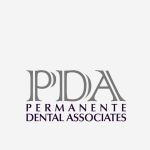Can I Use Over-the-Counter Products to Treat Gum Disease?
- Understanding Gum Disease
- Over-the-Counter Products for Gum Disease
- How Effective Are Over-the-Counter Products?
- When to Seek Professional Help for Gum Disease
- Prevention Tips for Gum Disease
1. Understanding Gum Disease
Gum disease, also known as periodontal disease, is a common condition that affects the gums and the supporting structures of your teeth. It typically begins with gingivitis, an inflammation of the gums caused by plaque buildup. If left untreated, gingivitis can progress to more severe forms of gum disease, including periodontitis, which can lead to tooth loss. Understanding gum disease is the first step in determining the best treatment options, including whether over-the-counter products can help.
2. Over-the-Counter Products for Gum Disease
Over-the-counter (OTC) products are readily available without a prescription and are commonly used to help treat or manage mild cases of gum disease. These products come in many forms, such as:
- Antiseptic Mouthwashes: These mouthwashes help kill bacteria and reduce plaque buildup, a common cause of gum disease.
- Antibacterial Gels: Applied directly to the gums, these gels can help reduce inflammation and prevent further infection.
- Medicated Toothpaste: Certain toothpaste formulations contain fluoride or antibacterial agents that can assist in controlling plaque and gingivitis.
- Dental Floss and Interdental Brushes: These help remove plaque and food particles from between teeth, reducing the risk of gum disease.
While these OTC products can be effective in managing early-stage gum disease, they may not be sufficient for advanced stages. It's important to assess the severity of your condition before deciding whether OTC treatments will work for you.
3. How Effective Are Over-the-Counter Products?
Over-the-counter products can be quite effective for managing the early signs of gum disease, such as mild gingivitis. They can help reduce inflammation, prevent plaque buildup, and keep your gums healthy. However, they are not a cure for advanced gum disease. For severe gum disease, professional dental treatment, such as scaling and root planing, may be necessary. It's essential to remember that OTC products are most effective when used as part of a consistent oral hygiene routine that includes regular brushing and flossing.
In some cases, OTC treatments may be recommended as part of a broader dental care plan, but they should not replace professional care, especially if you notice symptoms like persistent gum bleeding or pain.
4. When to Seek Professional Help for Gum Disease
While OTC products can help manage mild gum disease, it's essential to consult with a dentist if you experience any of the following symptoms:
- Persistent bad breath or a bad taste in your mouth
- Gum bleeding when brushing or flossing
- Receding gums or loose teeth
- Swollen, red, or tender gums
Professional dental treatments are crucial if you notice these symptoms, as untreated gum disease can lead to tooth loss and other health complications. A dentist can provide deeper cleaning treatments and may prescribe stronger medications to control the infection.
5. Prevention Tips for Gum Disease
The best way to avoid gum disease is through regular oral hygiene practices. Here are some tips to help prevent the development of gum disease:
- Brush your teeth at least twice a day using fluoride toothpaste.
- Floss daily to remove plaque and food particles from between teeth.
- Use an antiseptic mouthwash to kill bacteria and reduce plaque buildup.
- Visit your dentist regularly for professional cleanings and checkups.
- Eat a balanced diet rich in vitamins and minerals to support gum health.
By following these tips, you can reduce your risk of developing gum disease and maintain healthy gums throughout your life.
If you're struggling with gum disease or want to learn more about OTC products and professional treatments, visit Dentistry Toothtruth for expert advice and product recommendations. Learn more here.







 Aspen Dental - Merrillville, IN4.0 (754 review)
Aspen Dental - Merrillville, IN4.0 (754 review) Dr. Kim's Family Dentistry4.0 (11 review)
Dr. Kim's Family Dentistry4.0 (11 review) Permanente Dental Associates, P.C.0.0 (0 review)
Permanente Dental Associates, P.C.0.0 (0 review) Laura E. Davies, DDS4.0 (2 review)
Laura E. Davies, DDS4.0 (2 review) Dr Phillips Periodontics & Implants: Lee Christopher DMD4.0 (53 review)
Dr Phillips Periodontics & Implants: Lee Christopher DMD4.0 (53 review) Stephen M Weisner DMD5.0 (7 review)
Stephen M Weisner DMD5.0 (7 review) The Importance of Oral Health Education During Pregnancy for a Healthy Pregnancy
The Importance of Oral Health Education During Pregnancy for a Healthy Pregnancy Best Tips for Brushing Your Teeth Properly for Healthy Gums: Essential Techniques for Oral Health
Best Tips for Brushing Your Teeth Properly for Healthy Gums: Essential Techniques for Oral Health Why Skipping Dental Checkups Can Lead to Bigger Oral Health Problems
Why Skipping Dental Checkups Can Lead to Bigger Oral Health Problems Advantages of Porcelain Dental Restorations
Advantages of Porcelain Dental Restorations How Can Diabetes Cause Tooth and Gum Problems? Preventing and Managing Oral Health Issues
How Can Diabetes Cause Tooth and Gum Problems? Preventing and Managing Oral Health Issues Healthy Habits for Promoting Good Oral Health and Hygiene: Tips for a Healthy Smile
Healthy Habits for Promoting Good Oral Health and Hygiene: Tips for a Healthy Smile